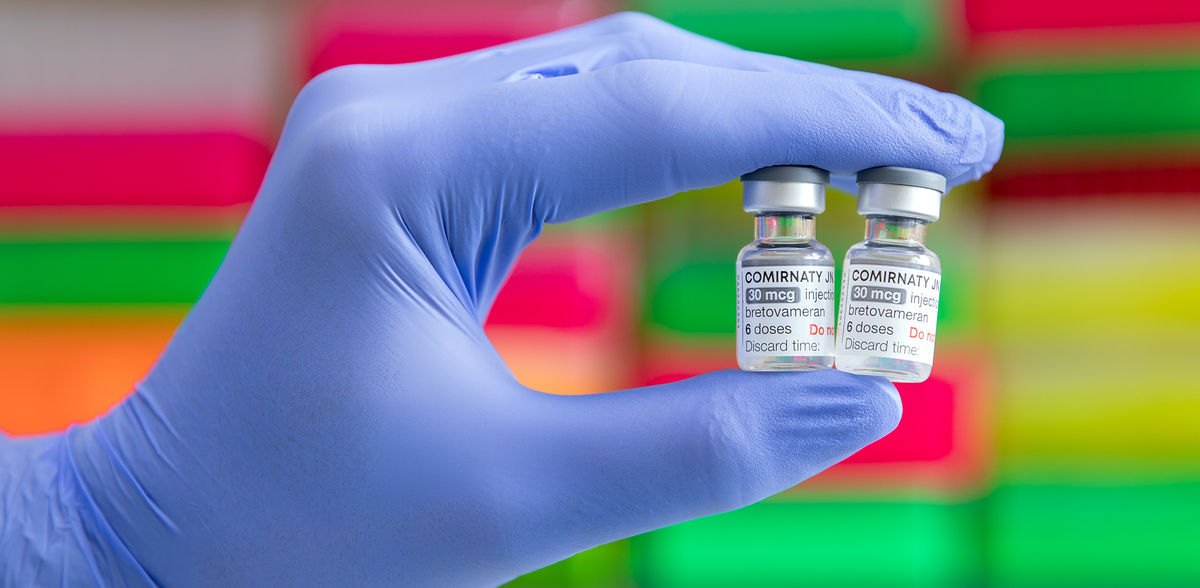Study confirms effectiveness of the new Omikron booster
Biontech vaccine activated for booster vaccination against the current Corona variant JN.1 Production of adapted antibodies
The autumn wave of coronavirus is sweeping across Germany. Those affected mainly suffer from coughs, colds, sore throats and fever, but also from headaches, aching limbs, general weakness and shortness of breath. Because new SARS-CoV-2 variants and subtypes are constantly emerging, coronavirus vaccines must be constantly adapted, similar to influenza viruses. Currently, the virus variant Omikron JN.1 and its sub-lineages KP.2 and KP.3 are predominant. Since August this year, the vaccine ‘Comirnaty Omicron JN.1’ from Biontech/Pfizer, which has been adapted to the current variants, has been on the market in Germany. A study by the Department of Rheumatology and Immunology at the Hannover Medical School (MHH) has now scientifically proven the effectiveness of the new Omikron booster. In cooperation with the German Primate Centre in Göttingen, the researchers have published the first article on this topic in the renowned journal ‘The Lancet Infectious Diseases’.
The blueprint of the spike protein
The new booster is another mRNA vaccine, so it consists of messenger RNA. The principle: the mRNA contains the genetic information for the blueprint of the so-called spike protein, which sits on the surface of the coronavirus and helps the virus enter cells. The immune system recognises the protein as foreign, triggers a defence reaction and develops immune protection. ‘Comirnaty Omicron JN.1’ is a so-called monoclonal vaccine, i.e. it contains only mRNA from this omicron variant. At the end of June, the European Medicines Agency (EMA) recommended marketing authorisation for the new COVID-19 mRNA vaccine based on the JN.1 spike protein. “However, data on the immune response in humans or evidence from practice on vaccine-induced protection was still pending until our study,” says senior physician Professor Dr Alexandra Dopfer-Jablonka, who is leading the immune study together with her clinic colleague Professor Dr Georg Behrens.
Protection against severe disease progression
To obtain such data, researchers measured the immune response in 42 MHH employees who had been vaccinated with the new vaccine as part of the ‘COVID-19 Contact (CoCo)’ study, which has been ongoing since the beginning of the coronavirus pandemic. The result: around two weeks after vaccination with the new booster, antibodies against the current Omikron variant had increased significantly. Professor Behrens points out that the participants already had a high level of immunity to various SARS-CoV-2 variants due to previous vaccinations and having survived corona infections. “However, we assume that the new mRNA vaccine against Omikron JN.1 will protect against hospitalisation and post-COVID sequelae caused by most current virus variants.”
According to the Standing Committee on Vaccination (Stiko), a booster vaccination with the new, adapted vaccine is recommended for anyone aged 60 or older. In addition, everyone who is at particular risk of a severe course of the disease due to an underlying condition should get a booster. Stiko also recommends the booster vaccination for residents of nursing homes and for employees in the nursing and health care sector. The booster vaccination should be repeated annually, similar to the flu vaccination. The vaccine manufacturers Biontech/Pfizer and Moderna are already working on a combined vaccine that provides simultaneous protection against coronaviruses and influenza viruses.
The study on the Omikron JN.1 virus variant was conducted under the direction of the MHH's Department of Rheumatology and Immunology in cooperation with the MHH's Department of Paediatric Pneumology, Allergology and Neonatology, the German Primate Center Göttingen, the Cluster of Excellence RESIST and the Center for Individualised Infection Medicine CiiM.
Original publication
Christine Happle et al.; Humoral immunity after mRNA SARS-CoV-2 omicron JN.1 vaccination; The Lancet Infectious Diseases; 2024























































